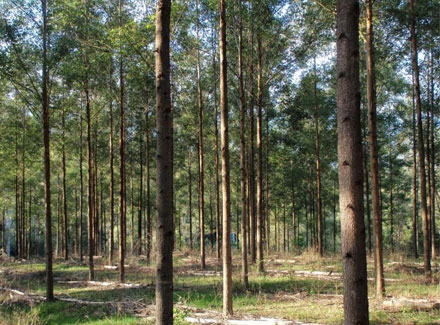 The Queensland hardwood timber industry is concerned that rising native log exports are eroding opportunities to grow local jobs and the economic benefits generated from downstream processing and value adding. Source: Timberbiz
The Queensland hardwood timber industry is concerned that rising native log exports are eroding opportunities to grow local jobs and the economic benefits generated from downstream processing and value adding. Source: Timberbiz
“There are significant opportunities for growth in our hardwood processing industry, which has extensive experience working with private landowners to source and process local forest resources into value-added timber,” Timber Queensland CEO Mick Stephens said.
“Fortunately, the hardwood industry already processes around 280,000 cubic metres of sawlog each year that is turned into high-value products such as decking, furniture and structural beams and posts. With timber demand rising, there is plenty of room for growth.
“We also recognise that log exports can play an important role in generating export income and providing a market for wood that would otherwise not be suitable for domestic processing.”
However, reports of increasing approaches from native log exporters targeting private landowners was raising concerns the growth potential for domestic processing was being eroded and may not be in the long-term interests of the timber industry.
Mr Stephens said that over the past three years, more than 330,000 cubic metres of native hardwood logs had been exported from Queensland, predominately in containerised shipments to China.
“This trend does represent a risk to local resource supply, particularly where native sawlogs could be processed into value-added products to meet market demand and support local jobs,” Mr Stephens said.
Private native forestry is highly regulated and includes state compliance requirements with codes of forest practice and a suite of environmental regulations as well as federal export permits.
“We have raised concerns with both levels of Government about ensuring compliance of export operators with these regulatory requirements. These concerns apply both in South-East Qld and North Queensland where landowners continue to be targeted by log exporters to China,” Mr Stephens said.
“A key priority for the incoming state government will be to work with federal agencies to fully implement compliance with existing regulation for export operations so as to ensure a level playing field with domestic processing.”
Mr Stephens said this was a policy commitment from the Palaszczuk Government in the 2017 election – to engage with industry to address concerns about future supplies while recognising that exports of unprocessed timber from Queensland was a potential problem.
“Clearly the volume of native log exports since then indicates there is still considerable work to be done,” he said.
Timber Queensland looked forward to discussing and hearing in more detail from the major parties and other candidates on how they can help support and grow the forest and timber industry, which generated almost $4 billion in value each year and supported 25,000 jobs.





